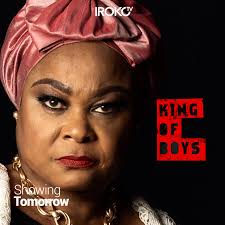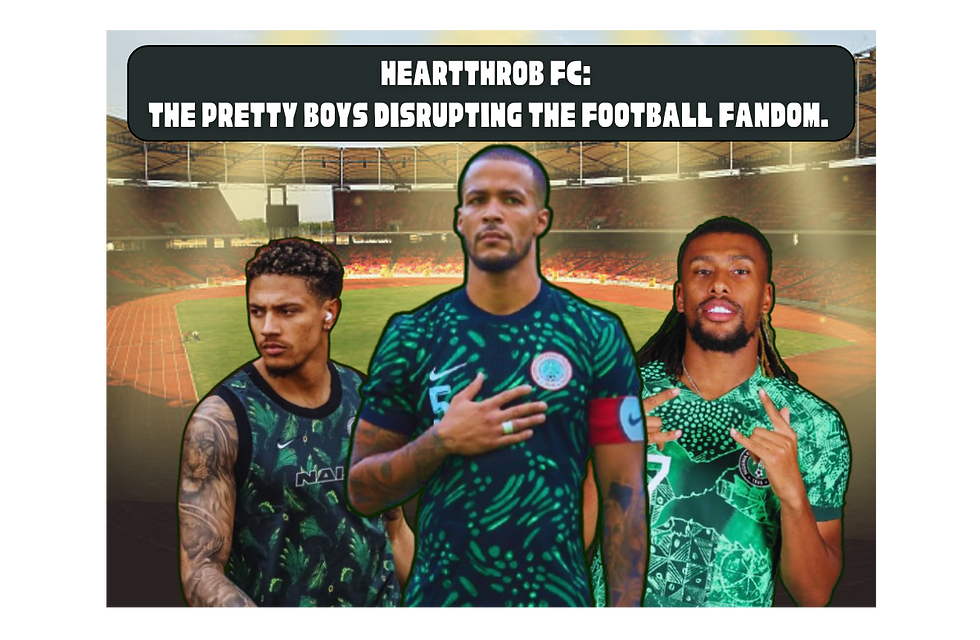
In Our Feelings: Why We Love the Things We Love, Whether Real or Fictional.
- Udu Ifeoma

- Nov 8, 2024
- 3 min read
Updated: May 6, 2025
Ever find yourself rooting so hard for a fictional couple that it feels like your hearts on the line with theirs? Maybe it’s two old friends finally admitting they love each other, or a spark that blossoms in the most unlikely situation. That feeling is real, and the reason why romcoms, K-dramas, and fantasy series with romance arcs hook us every time. They can make us feel all the highs and lows of real love because, as wild as it sounds, our brains don’t totally separate real love from fictional love.
Why Our Brains Take Fictional Love Seriously.
So, what’s going on in our heads when we latch onto these couples and get so invested? Neuroscience actually has an answer. When we’re caught up in a story, the same areas of our brain light up as they do during real-life emotional experiences. It’s those mirror neurons, basically the MVPs for empathy, which helps us “feel” what others feel. So, when Nick kisses Rachel in Crazy Rich Asians or Yoon Se-ri reunites with Captain Ri in Crash Landing on You, our brains play along like it’s happening to us.

Crazy Rich Asians
Parasocial Relationships: Our One-Sided Love Affairs with Fiction.
This strong connection to characters often falls under what psychologists call parasocial relationships. These are one-sided bonds we form with characters, celebs, or even entire fictional worlds. Parasocial relationships aren’t new, generations before us were obsessed with couples like Elizabeth Bennet and Mr. Darcy.

Elizabeth Bennet and Mr. Darcy.
Now, with Netflix and the internet making stories more accessible than ever, it’s easy to find yourself in love with a new story every week. Closer to home, think about how hooked Nigerians got on characters in The Wedding Party. Dunni and Dozie’s chaotic but relatable love story felt so personal, like we knew them! Or take King of Boys, where Eniola Salami became more than just a character, she was this fierce, complex woman we couldn’t look away from. And sometimes, we even love to hate couples like the ones in A Tribe of Judah, who manage to be so exasperating yet keep us invested all the same. These connections go beyond mere entertainment; they give us safe spaces to feel intensely, without the risks that come with real-life relationships. And, honestly, there’s something so fulfilling in that.

Dozie and Dunni from the wedding Party.

Eniola Salami from the King Of Boys.
Why We Love to Love Fictional Couples.
Why are we so invested in fictional love? It’s because stories reflect bits of us. They echo what we long for, and they’re often just messy enough to feel real. Think about Skinny Girl in Transit, viewers were all in on Tiwa’s ups and downs, from dating drama to her beautiful relationship with Mide. It resonated because so many of us saw our own dreams and struggles in her story. Or look at Far from Home, where romantic tensions kept viewers coming back, because it reminded us of how complicated love and ambition can be. These stories validate our own experiences and show that, at the end of the day, our romantic hopes, heartbreaks, and dreams aren’t so different.

Tiwa and Mide
The Emotional Reality of Fictional Love.
So, is fictional love “real”? Well, it depends on how you define it, but those emotions are definitely real. Fiction lets us explore these feelings in a way that’s free from real-life baggage. Characters like Lara Jean in To All the Boys I’ve Loved Before or Kaz and Inej in Shadow and Bone help us tap into emotions we might not always confront. And Nollywood’s take on this is just as powerful, whether it’s with Isoken, Osaze and Kevin in Isoken. Their love stories make us laugh, cry, and maybe even reflect on our own lives a little.

Kaz and Inej.

Isoken, Osaze and Kevin from Isoken.
Our love for these characters and their relationships isn’t just “fake feelings.” It’s proof that our need for connection, empathy, and love is real and powerful. Fictional love might be confined to a screen or page, but the way it moves us is as genuine as any emotion.
So, next time you find yourself binge-watching a romcom or tearing up over a fictional breakup, remember its okay to fall for fictional love, because that feeling? It’s yours










Comments